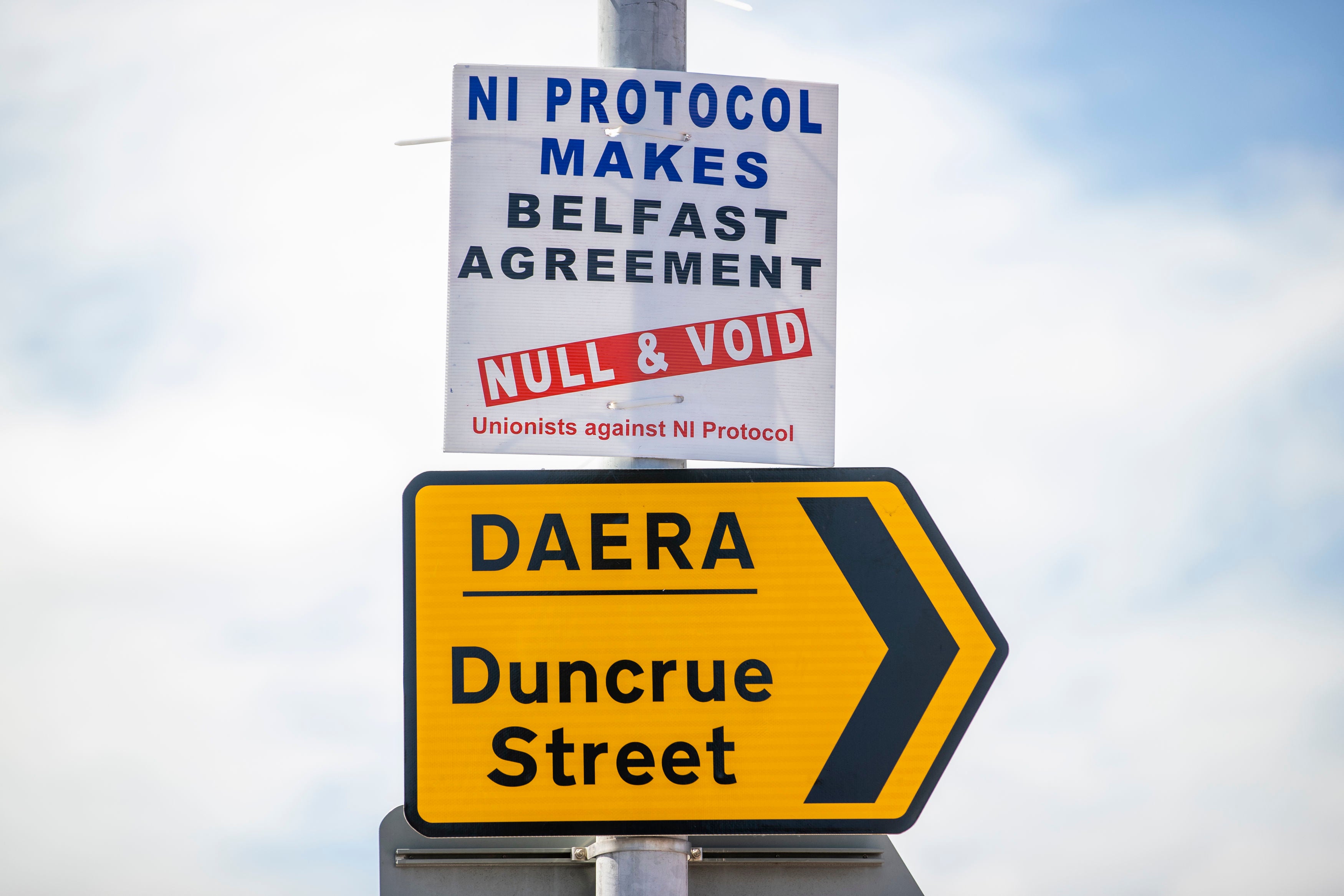What does the ruling on the Northern Ireland protocol mean for the future of the union?
Sean O’Grady explains what today’s ruling means and why it makes volatility at the Irish border an increasingly likely prospect


Answering a couple of tetchy Northern Irish Unionist MPs at PMQs, Boris Johnson promised to “study carefully” the latest judgment from the High Court in Belfast. As well he might, too. For Mr Justice Colton ruled that there was no case for a full judicial review of the Northern Ireland protocol on the grounds that: It conflicted with the Act of Union 1801 (which incorporated Ireland into the United Kingdom); it contravened the human rights of the people of Northern Ireland (because they’ve no direct say in it); it contradicted the Good Friday Agreement or, indeed, European law.
He agreed that the protocol, which forms part of the Brexit deal and has the status of an international treaty, was inconsistent with the original Act of Union (which applies vestigially to the six counties of the north of Ireland), but concluded that the European Union (Withdrawal) Act 2018 (as amended) superseded and effectively repealed parts of the old legislation. He gave short shrift to the other grievances, ie on legal grounds.
The net effect of all this is to weaken the Unionist case for scrapping the protocol. Other legal machinations might be pursued, but, as Ian Paisley told the prime minister in the Commons, getting rid of the protocol will have to be done through political means and via parliament rather than in courtrooms.
In taking the case to court with such spectacular lack of success, the likes of Arlene Foster, the Democratic Unionist Party itself, David Trimble, Kate Hoey and various others have ended any doubt about what might have been done by Johnson in signing up to the Withdrawal Agreement was dodgy. The judge has said it was OK.
None of which really solves anything. The European Union has consistently refused to renegotiate the agreement in any case, and even if the court had ruled otherwise, it would have probably ignored it. The EU ambassador to the UK, Joao Vale de Almeida, and President Macron of France are just two voices that have reiterated this in recent weeks. No doubt Angela Merkel will make the same point, politely, when she meets Johnson and the Queen in London on Friday.
Johnson and Lord (David) Frost have made vaguely menacing noises about the protocol, but the latest extension of the grace period for implementing its provisions (notoriously on the sausage trade) was requested from Brussels as per the terms of the withdrawal agreement – and not imposed unilaterally. In return, the EU has graciously granted the extension. The can has been kicked down the road for a few more months, in the fashion we’ve become familiar with during the never-ending process of getting Brexit done.
As ever, the future of the protocol will be decided through political processes and, as is the way in the province, on the streets. The marching season is fast approaching, with all that implies for violence, intimidation and low-level terrorism. Loyalists and Republicans, respectively, will want to make it clear to London, Dublin and Brussels (and Washington) that there is a risk of an escalation of violence if affairs are not concluded to their satisfaction.
There is no logical way to satisfy both groups because the border between the UK and the EU has to be put somewhere, so the outlook for resolution looks bleak. At the moment, the Northern Ireland executive and assembly are still operating. But with new DUP leader Jeffrey Donaldson coming under intense pressure to scrap the protocol, and Sinn Fein resisting, the power-sharing structures may collapse again. Not for the first time, the situation in Northern Ireland is becoming volatile.
Join our commenting forum
Join thought-provoking conversations, follow other Independent readers and see their replies
Comments
Bookmark popover
Removed from bookmarks